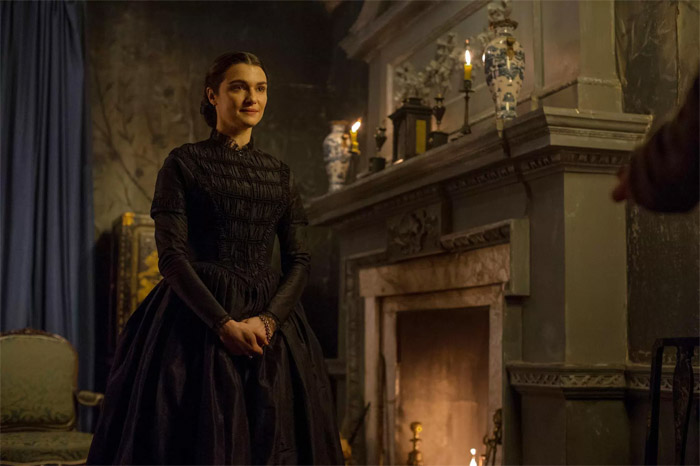Directed by Roger Michell
Picturehouse, Liverpool
From 9th June 2017
Reviewed by Colin Serjent
Rachel, as played supremely well by Rachel Weisz, is an enigmatic and ambiguous character, and exudes a strong presence throughout the film, in this adaptation of the Daphne du Maurier novel. You are left guessing whether she is the victim or perpetrator.
Did she poison her husband Ambrose, who adopted Philip (Sam Chaflin) as a young boy, who is now in his mid-twenties. Following his death the vast Cornwall estate, deep in the countryside, is left to him in Ambrose’s will
Before his demise, his late guardian had written Philip a number of letters from Italy, where he was recovering from an earlier illness, that his British-Italian wife had held him captive – then how did he manage to post these letters to him? – and slowly poisoned him.
Was this a delusion on Ambrose’s part or reality? You are never sure which.
But Philip believes that Rachel is a femme fatale and not to be trusted.
However – and this is what I found bizarre – is why, if he has this view, was she invited by him to travel from Italy to reside at the estate, with no claim of anything at all in the will?
But her sexual allure wins him over, and he becomes increasingly infatuated with her, to the point of making incomprehensible decisions to gain her affection, by whatever means possible.
His judgement is not helped by his seemingly incessant desire to quaff wine.
A stand out feature in the film was the bewitching candlelit shots, which brought a highly atmospheric touch to particular scenes, perhaps reflecting Rachel’s darkness and light.
